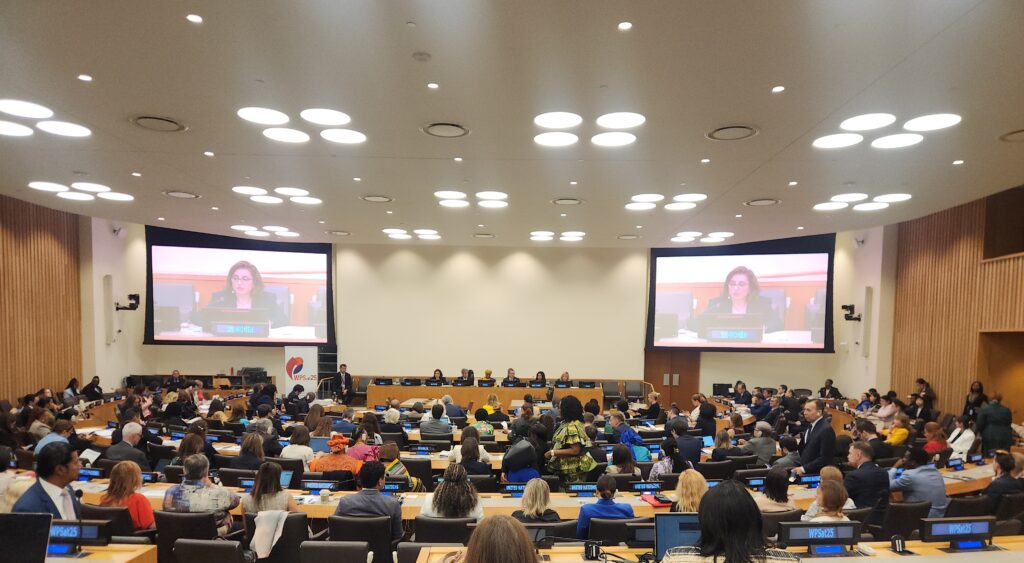24 September 2025 | Conference Room 3, UN Headquarters, New York
Overview & Context
On 24 September 2025, the Women, Peace and Security (WPS) Focal Points Network convened its Ministerial-Level Side Event on the margins of the 80th session of the UN General Assembly (UNGA 80). The event, hosted jointly by Japan and Norway, who serve as the Network’s Co-Chairs for 2025 and organised in partnership with UN Women, gathered ministers and senior officials from over 90 states and regional bodies.
The year 2025 holds symbolic resonance: it marks the 80th anniversary of the UN, the 30th anniversary of the Beijing Declaration, and the 25th anniversary of UNSC Resolution 1325 on Women, Peace and Security. The stated purpose of the side event was to reaffirm the centrality of WPS in global peace and security frameworks, while encouraging member states to innovate and deepen commitments in response to evolving challenges.
Opening Remarks & Key Messages
Foreign Minister Takeshi Iwaya (Japan) opened the session alongside his Norwegian counterpart, UN Women leadership, and President Netumbo Nandi-Ndaitwah of Namibia. In his remarks, Minister Iwaya underlined the heightened urgency of advancing the WPS agenda in today’s turbulent global environment:
“In today’s increasingly uncertain international society, the implementation of WPS is more important than ever.”
He also highlighted that 2025 marks the 25th anniversary of UNSC Resolution 1325, and pledged Japan’s intention to leverage its co-chair role to strengthen WPS as a core pillar of its foreign policy:
“Japan would … continue to vigorously promote WPS as one of the main pillars of Japan’s foreign policy and contribute even more to the international promotion of WPS.”
Foreign Minister Espen Barth Eide (Norway), speaking in his capacity as co-chair, reaffirmed Norway’s commitment to the gendered dimensions of peace and security. On his social media feed following the event, he emphasized that “women’s leadership in diplomacy is as crucial as ever” and affirmed that the WPS meeting provided a needed platform to press for inclusive policymaking.
Thematic Focus & Member Engagement
Throughout the two-hour session, participating member states and Network focal points delivered statements highlighting national initiatives, challenges, and planned steps to deepen WPS integration. The main themes that emerged included:
- Innovation in WPS strategies: Several delegations pledged to revisit and adapt existing policies, emphasizing context-specific approaches to conflict, climate shocks, and pandemic recovery.
- Institutional strengthening and coherence: Many countries highlighted reforms to better coordinate across ministries and align WPS objectives with national security, development, and humanitarian frameworks.
- Peer learning and knowledge exchange: The event underscored the value of the Network as a forum for sharing good practices, lessons learned, and for collaborative problem-solving.
- Multilateral reinforcement: Delegations affirmed that WPS must remain embedded in global and regional peace, security, and development agendas to withstand shifts in geopolitics.
Going forward, the co-chairs (Japan and Norway), in coordination with UN Women and member states, will need to translate high-level statements into concrete, measurable actions including robust budgets, dedicated institutional units, and clear monitoring mechanisms. Continued peer accountability, mid-term reporting, and integration of WPS into national and regional security architectures will be vital.




